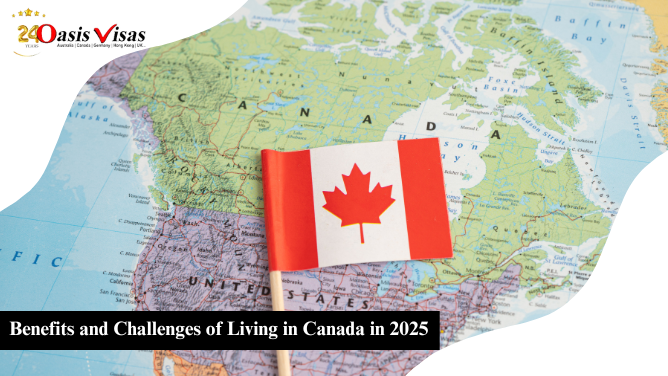
Beginning a new chapter in Canada is filled with anticipation and apprehension. While it offers newcomers a chance to develop a promising future away from their homeland, there’s also the anxiety of navigating uncharted waters in a foreign land, potentially leading to initial missteps.
However, Canada, with its welcoming atmosphere and diverse opportunities, attracts thousands of newcomers each year. Starting a new life in a different country can be exhilarating, but it also comes with its challenges. To help you navigate this transition smoothly, here are 10 common mistakes newcomers should avoid.
1. Underestimating the Importance of Research: Before making the move to Canada, it’s essential to conduct thorough research about your chosen destination. This includes understanding the local job market trends, housing options, cost of living, and cultural norms. Without adequate research, newcomers may find themselves ill-prepared for the realities of life in Canada, leading to unnecessary challenges and setbacks.
2. Neglecting Credential Evaluation: Many newcomers arrive in Canada with professional qualifications and academic degrees obtained in their home countries. However, these credentials may not always be recognized in Canada. It’s crucial for newcomers to have their qualifications evaluated by relevant Canadian authorities to ensure they meet the necessary standards for employment or further education.
3. Ignoring Language Proficiency: Proficiency in English or French is essential for success in Canada, both professionally and socially. Many newcomers underestimate the importance of language skills and fail to invest sufficient time and effort in improving them. By neglecting language proficiency, newcomers may face barriers to communication, employment, and integration into Canadian society.
4. Failing to Build a Professional Network: Networking is crucial for finding job opportunities and accessing support systems in Canada. Many newcomers make the mistake of isolating themselves or only socializing within their own community. Building a strong professional network through attending events, joining associations, and connecting with professionals on platforms like LinkedIn can significantly enhance newcomers’ career prospects and social integration.
5. Misunderstanding Canadian Workplace Culture: The workplace culture in Canada may differ significantly from what newcomers are accustomed to in their home countries. Misunderstandings regarding communication styles, work ethics, and hierarchical structures can lead to friction and misunderstandings in the workplace. It’s essential for newcomers to familiarize themselves with Canadian workplace norms and adapt their behavior accordingly to ensure smooth integration into the workforce.
6. Neglecting Budgeting: Canada can be an expensive country to live in, particularly in major cities like Toronto and Vancouver. Many newcomers fail to create a realistic budget that accounts for living expenses, taxes, healthcare, and other essentials. Without proper budgeting, newcomers may find themselves facing financial strain and difficulty making ends meet, impacting their overall well-being and quality of life.
7. Overlooking Health Insuranc: While Canada has a publicly funded healthcare system, certain medical services such as prescription drugs and dental care are not covered. It’s essential for newcomers to invest in private health insurance to ensure comprehensive coverage for themselves and their families. Neglecting health insurance can leave newcomers vulnerable to unexpected medical expenses and financial hardship.
8. Underestimating Weather Preparedness: Canada is known for its diverse and sometimes extreme weather conditions, particularly in regions like Alberta and Quebec. Many newcomers underestimate the importance of being prepared for Canadian weather and fail to invest in appropriate clothing and gear. Without proper preparation, newcomers may struggle to cope with cold winters, heavy snowfall, and other weather-related challenges.
9. Ignoring Social Integration: Social integration is key to feeling a sense of belonging and connection in Canada. Many newcomers make the mistake of isolating themselves or only socializing within their own ethnic or cultural community. It’s essential for newcomers to engage with local communities, participate in events, and embrace Canadian culture to foster meaningful relationships and a sense of belonging.
10. Neglecting Mental Health Awareness: Moving to a new country can be emotionally challenging, and many newcomers experience feelings of loneliness, isolation, and stress. Unfortunately, mental health issues are often overlooked or stigmatized within immigrant communities. It’s essential for newcomers to prioritize their mental health and seek support if needed. By neglecting mental health awareness and support, newcomers may struggle to cope with the emotional challenges of starting a new life in Canada.
Starting a new life in Canada offers countless opportunities for growth, success, and fulfillment. However, newcomers must be mindful of the common mistakes outlined in this article to ensure a smooth transition and a successful start to their new lives. By avoiding these pitfalls and proactively addressing challenges, newcomers can set themselves up for a bright and prosperous future in their new home country. Welcome to Canada!









